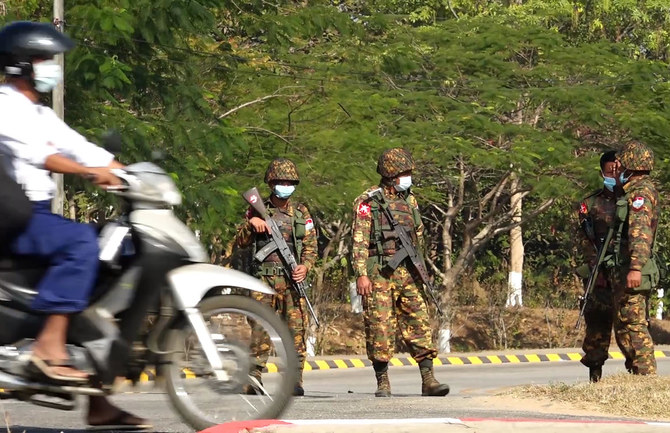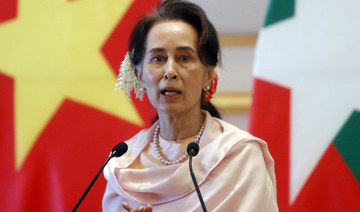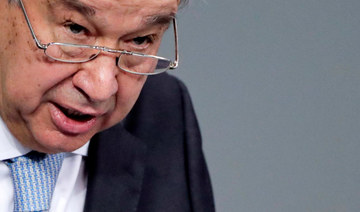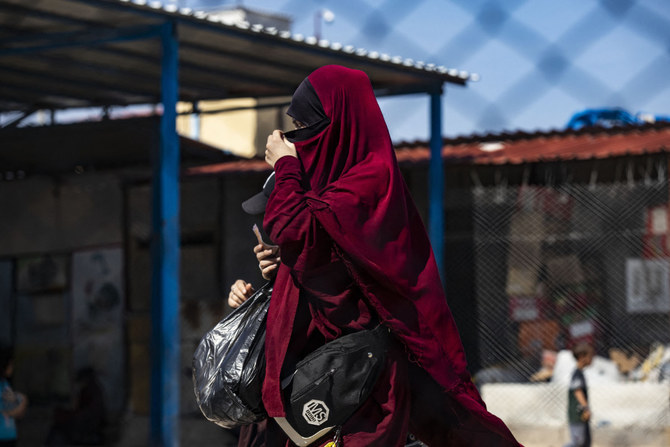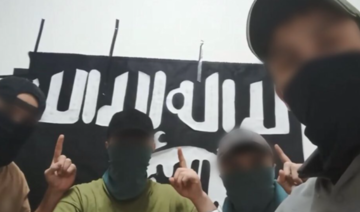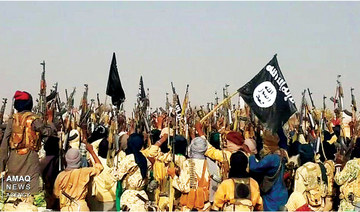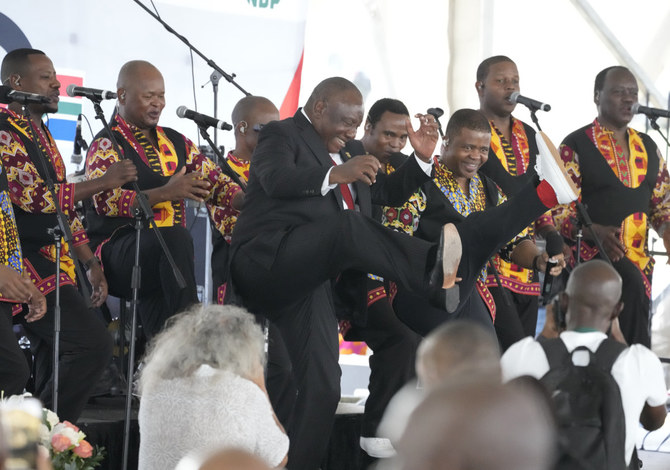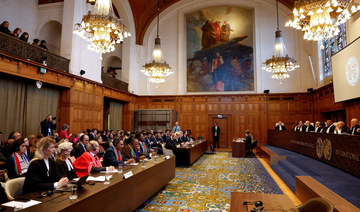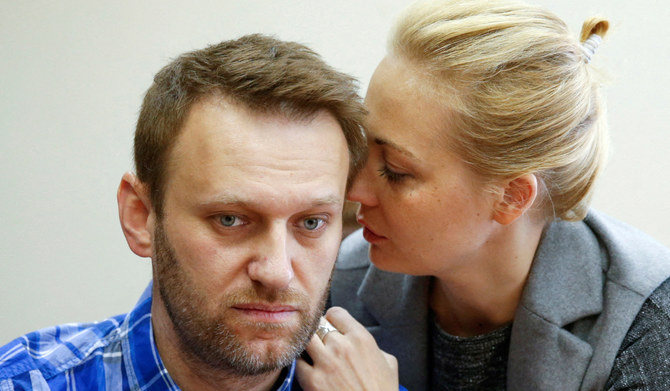LONDON: The United States led governments around the world in calling for the restoration of Myanmar’s democracy on Monday after the military staged a coup, arresting civilian leader Aung San Suu Kyi and other politicians.
President Joe Biden threatened new sanctions on Myanmar and assailed the country’s army for the coup, calling it a “direct assault on the country’s transition to democracy and rule of law.”
“The United States removed sanctions on Burma over the past decade based on progress toward democracy,” Biden said in a statement, using Myanmar’s former name. “The reversal of that progress will necessitate an immediate review of our sanction laws and authorities, followed by appropriate action. The United States will stand up for democracy wherever it is under attack.”
Opinion
This section contains relevant reference points, placed in (Opinion field)
Myanmar has been a Western democracy promotion project for decades and had been a symbol of some success. But over the past several years, there have been growing concerns about its backsliding into authoritarianism. Disappointment with Suu Kyi, the former opposition leader, has run high, especially over her resistance to reining in repression of Rohingya Muslims in the country’s west.
“The international community should come together in one voice to press the Burmese military to immediately relinquish the power they have seized,” Biden said.
We call on the Burmese military leaders to cease their actions and release all government officials and civil society leaders. The democratically elected civilian government reflects the will of the people. https://t.co/CkOKYDsbyN
— Ned Price (@statedeptspox) February 1, 2021
“We will work with our partners throughout the region and the world to support the restoration of democracy and the rule of law, as well as to hold accountable those responsible for overturning Burma’s democratic transition.”
Newly appointed US Secretary of State Antony Blinken also called on Myanmar’s military “to release all government officials and civil society leaders and respect the will of the people of Burma as expressed in democratic elections on November 8.”
Before the coup, Washington, alongside several other Western nations, had urged the military to “adhere to democratic norms” in a Jan. 29 statement that came as the commander-in-chief threatened to revoke the country’s constitution.
British Prime Minister Boris Johnson condemned the coup and the “unlawful imprisonment of civilians, including” Suu Kyi.
I condemn the coup and unlawful imprisonment of civilians, including Aung San Suu Kyi, in Myanmar. The vote of the people must be respected and civilian leaders released.
— Boris Johnson (@BorisJohnson) February 1, 2021
“The vote of the people must be respected and civilian leaders released,” he tweeted.
British Foreign Secretary Dominic Raab also added his words of condemnation about the state of emergency the Myanmar military had imposed.
“The democratic wishes of the people of Myanmar must be respected, and the National Assembly peacefully re-convened,” he said on Twitter.
The UK condemns the state of emergency imposed in Myanmar & the unlawful detention of figures in the Civilian Government and civil society by the military. The democratic wishes of the people of Myanmar must be respected, and the National Assembly peacefully re-convened.
— Dominic Raab (@DominicRaab) February 1, 2021
Britain’s foreign ministry said it would pursue diplomatic steps with its allies to ensure a return to democracy in Myanmar and summoned the southeast Asian country’s ambassador for a meeting with Minister for Asia Nigel Adams.
“The Minister for Asia made clear the democratic wishes of the people of Myanmar must be respected, and the National Assembly peacefully re-convened. He also said that the UK would work with like-minded partners and pursue all necessary diplomatic levers to ensure a peaceful return to democracy,” Britain’s foreign ministry said in a statement.
China, which regularly opposes UN intervention in Myanmar, called for all sides to “resolve differences.”
“China is a friendly neighbor of Myanmar and hopes the various parties in Myanmar will appropriately resolve their differences under the constitutional and legal framework to protect political and social stability,” foreign ministry spokesman Wang Wenbin said at a press briefing.
UN Secretary-General Antonio Guterres “strongly” condemned the military’s detention of Suu Kyi, President Win Myint and other leaders.
The detention of political leaders in Myanmar is a serious blow to democratic reforms in the country.
I urge the military leadership to respect the will of the people & adhere to democratic norms. https://t.co/vL4yYzYBkL
— António Guterres (@antonioguterres) February 1, 2021
“These developments represent a serious blow to democratic reforms in Myanmar,” spokesperson Stephane Dujarric said in a statement.
The UN also said it fears the coup will worsen the plight of some 600,000 Rohingya Muslims still in the country.
“There are about 600,000 Rohingya those that remain in Rakhine State, including 120,000 people who are effectively confined to camps, they cannot move freely and have extremely limited access to basic health and education services,” Dujarric told reporters.
“So our fear is that the events may make the situation worse for them,” he said.
.@antonioguterres strongly condemns the detention of Daw Aung San Suu Kyi, President U Win Myint and other political leaders in Myanmar. These developments are a serious blow to democratic reforms in Myanmar. https://t.co/qsuY0JbuwP @UNinMyanmar
— UN Spokesperson (@UN_Spokesperson) February 1, 2021
The 15-member UN Security Council plans to discuss Myanmar in a closed meeting on Tuesday, diplomats said.
“We want to address the long-term threats to peace and security, of course working closely with Myanmar’s Asia and ASEAN neighbors,” Britain’s UN Ambassador Barbara Woodward, president of the council for February, told reporters.
China, backed by Russia, shielded Myanmar from any significant council action after the 2017 military crackdown. Beijing and Moscow are council veto powers along with France, Britain and the United States.
As #Myanmar’s friendly neighbor, China hopes parties will properly handle differences within the framework of its constitution & laws to safeguard political & social stability. pic.twitter.com/sqPi4zXJxj
— Spokesperson发言人办公室 (@MFA_China) February 1, 2021
The Myanmar army said it had detained Suu Kyi and others in response to “election fraud,” handing power to military chief Min Aung Hlaing and imposing a state of emergency for one year.
The United Nations called for the release of all those detained, Dujarric said. He said Guterres’ special envoy on Myanmar, Christine Schraner Burgener, “remains actively engaged” and is likely to brief the Security Council.
Japan urged Myanmar’s military to free Suu Kyi and to restore democracy.
“We request the release of stakeholders including state counsellor Aung San Suu Kyi who was detained today,” Japan’s foreign ministry said in a statement urging “the national army to quickly restore the democratic political system in Myanmar.”
European Council President Charles Michel strongly condemned the coup.
I strongly condemn the coup in #Myanmar and call on the military to release all who have been unlawfully detained in raids across the country.
The outcome of the elections has to be respected and democratic process needs to be restored.
— Charles Michel (@eucopresident) February 1, 2021
“The outcome of the elections has to be respected and democratic process needs to be restored,” the former Belgian prime minister tweeted.
“We call on the military to respect the rule of law, to resolve disputes through lawful mechanisms and to release immediately all civilian leaders and others who have been detained unlawfully,” Australian Foreign Minister Marise Payne said.
“We have noted the developments in Myanmar with deep concern. India has always been steadfast in its support to the process of democratic transition in Myanmar. We believe that the rule of law and the democratic process must be upheld,” India’s Ministry of External Affairs said in a statement.
The Norwegian Nobel Committee said it was appalled by the arrest of Suu Kyi, who won the peace prize in 1991, president Win Myint and other political leaders, and called for their “immediate release.”
Myanmar had been emerging from decades of strict military rule and international isolation that began in 1962, and Monday’s events were a shocking fall from power for Suu Kyi, who won the Nobel Peace Prize for her work promoting democracy and human rights.
She had lived under house arrest for years as she tried to push her country toward democracy and then became its de facto leader after her National League for Democracy won elections in 2015.
(With AFP, Reuters and AP)




